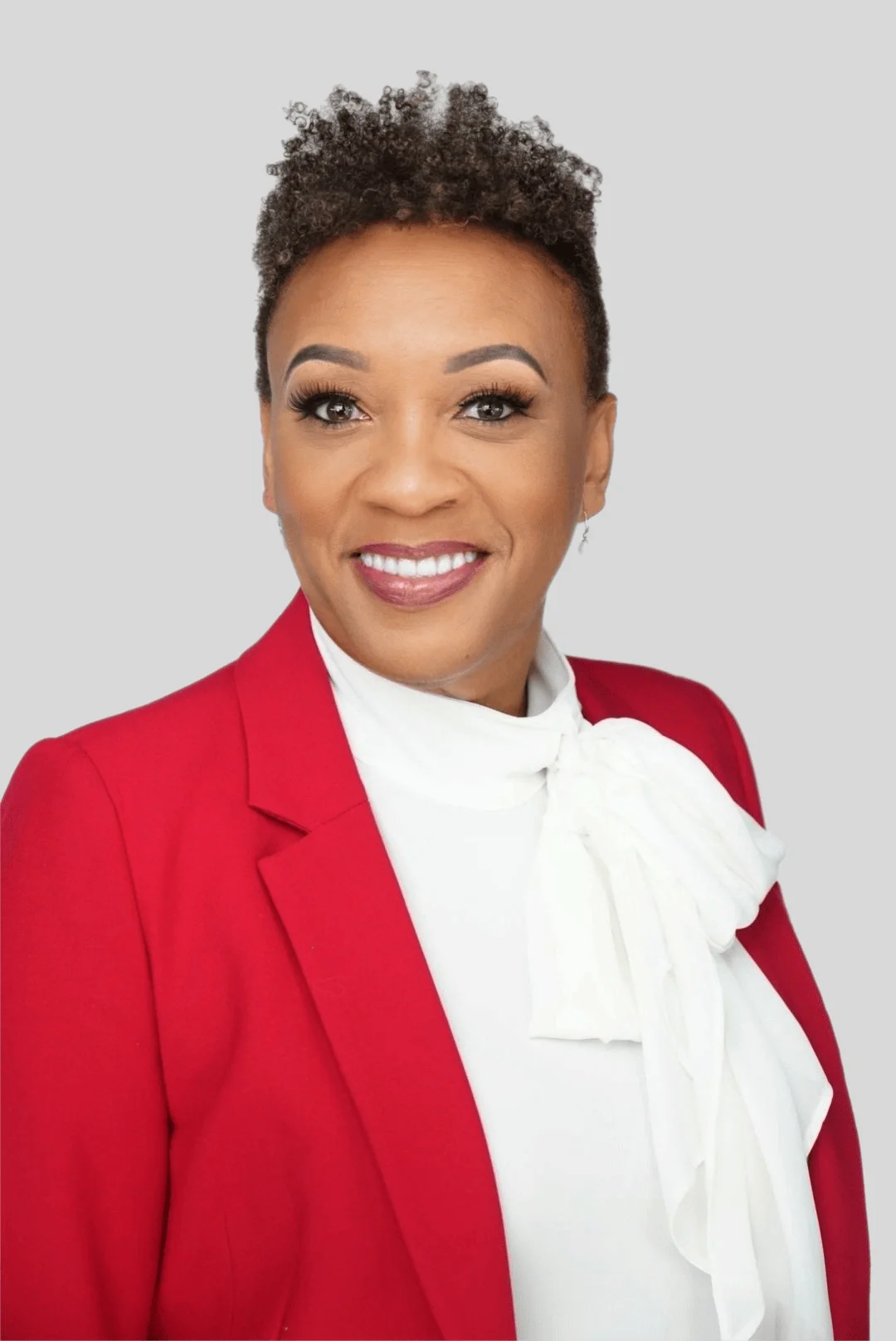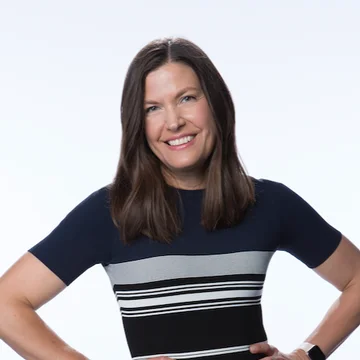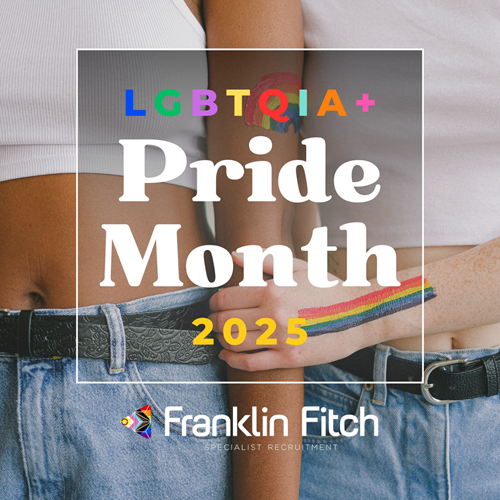
Tech Talent Spotlight Series: Elina Vale
03 Jun, 20248 minutesElina is a leading figure in the technology industry and co-founder of the award-winning Ess...

Elina is a leading figure in the technology industry and co-founder of the award-winning Essence App.
Founded in 2022, Essence App leverages the power of AI to create more inclusive workplaces, optimizing well-being and performance based on the menstrual cycle. Essence aims to optimize users' productivity by tracking the distinct phases of the menstrual cycle and providing tailored recommendations. Elina’s previous experience as the Global Director of Women in Tech highlights her commitment to empowering individuals. Essence App’s mission is to reduce burnout and turnover rates among those with menstrual cycles, contributing to a more balanced workplace.
Could you introduce yourself and tell us about your startup, Essence?
I'm Elina Vale, the former Global Director for Women in Tech, where I led women empowerment programs for thousands of women across 93 countries. Now I’m the CEO and Co-Founder of the women’s health app, Essence, an employee benefits platform that empowers women and people with cycles to thrive in the workplace by optimizing well-being and productivity according to the menstrual cycle. Essence is the cycle tracking app that helps you manage the tasks and stress of a busy life.
I previously developed behavioral change tools to help people improve their overall well-being and achieve goals. In the process, I realized that women are vastly underrepresented in scientific research and that mental and physical health tools on the market are tailored to men as a result. I identified menstrual health as a missing puzzle piece in the greater context of improving women’s well-being. That’s how I came up with the idea for Essence, which combines mental and menstrual health for a more holistic approach to women’s health in the workplace.
Somewhere along the way, I discovered that I love making things from scratch. So starting businesses like Essence became my way of being creative. I love art, but I don’t consider myself artistic. So since I can’t do art, I do business instead. I believe all entrepreneurs have a creative streak.
What has been your most career-defining moment that you are proud of?
I had the honor of serving the Women in Tech community as the Global Program Director. I’m thrilled to have helped facilitate and grow our community and deliver WiT programs to thousands of women across 93 countries. This career-defining experience has helped me understand the common challenges faced by women all over the world and work with the community to overcome them together. This role and the women I met throughout my time at WiT gave me the confidence to move forward with my own aspirations as a startup founder.

What has been a top challenge within your career and how have you addressed it?
Observing pharmaceutical companies and research institutes continue to deprioritize women’s health reminds me that discrimination against the femtech industry is very real. Women’s health is chronically under-researched and underfunded. We saw an example of this during the coronavirus pandemic: research on COVID-19 was not conducted on women of reproductive age, so we didn’t even know how the disease or vaccines could affect the menstrual cycle.
This discrimination and ignorance motivates me to fight for more capital for femtech companies that bring women’s health to the forefront and continue my work in de-stigmatizing menstrual health.
Only 2% of venture capital goes to female founders. Raising capital in the femtech sector as a female founder during the most challenging fundraising year to date (2023) has been a wild ride. I’m grateful for the investors who have joined us on this journey because they give me hope that more resources and support for female founders are on the horizon.
What challenges have you faced in the workplace, especially your experience in male-dominated environments?
A male investor at one of our accelerator programs last year said in front of a hundred people after our pitch: “I don’t mean to be controversial, but why do you focus mainly on women [when women are only half the population]?” We believe this question highlights a huge challenge to growing our company and raising capital in a patriarchal society. If male investors still see half the world as a niche, we see an opportunity to spark change and provide great value to our customers by challenging this narrative through education and empowering working women in the workplace.
What is the biggest deterrent, in your opinion, to women succeeding in the workplace, primarily in the tech industry?
The tech industry has historically been male-dominated, fostering a culture that often unconsciously favours men. This can result in women feeling unwelcome or undervalued, leading to their exclusion from important networks and scepticism about their technical abilities.
For instance, during my time at Women in Tech, I met a junior developer who felt insecure and hesitant to share her experiences or seek advice in her new role. She was assigned a male mentor, but the relationship was not conducive to her growth. She felt her questions were dismissed as trivial, reinforcing her insecurities.
After participating in three mentoring sessions at Women in Tech, she recognized that the company’s environment was discouraging and that the mentoring relationship was not a good fit. Without the safe, supportive environment provided by Women in Tech, she might have abandoned her tech career altogether.
You cannot grow holistically in a hostile environment. Women in tech face numerous challenges, including balancing work with disproportionate family and caregiving responsibilities. Without women represented as leaders in the tech industry, allies to women, and compassionate mentoring, and inclusive workplace cultures, these talented women might struggle to meet the industry's demands and realise their full potential.
As an employer, what would you recommend to other companies regarding infrastructure to have in place to develop the best talent?
As I'm running a business and HR-facing startup with a focus on women's health in the workplace, I would say that one of the most practical and visible signs of creating an inclusive workplace to attract and retain the best talent includes implementing menstrual well-being guidelines and policies. Access to digital health apps like Essence, provision of menstrual health products in the restrooms, and offer the opportunity to work flexibly, either on individual schedules or remotely. In order to create lasting cultural change in a workplace, consultation with women’s health experts is needed to help revamp company policies to be more menstrual-friendly and increase education around menstrual health in general.
Finally, offering employee benefit programs related to menstrual health is key to cementing the change, which simultaneously elevates the company’s HR brand and employee satisfaction.
How does Essence help create more inclusive workplaces and optimize wellbeing?
90% of women have disruptive premenstrual symptoms, and 95% don’t have access to supportive resources that can help. The Guardian recently reported that more than two out of three women have bad work experiences due to periods. The lived experiences of women and people with cycles are finally being revealed through research. Companies are literally losing money due to period inequities despite increased awareness about the impact of menstrual cycles on work and performance. The British organisation In Kind Direct reports that more than 4 billion dollars are lost every year due to workplace period inequality in the UK.
Essence addresses the glaring gap in employee benefits that overlooks the unmet needs of half the population: menstrual health. There is still a stigma associated with menstruation at work and in society as a whole. All of this leads to productivity loss and decreased levels of employee well-being. The Essence App, together with our menstrual health masterclasses and collaboration with menstrual health experts, not only seamlessly fills this void but also pioneers long-lasting cultural changes. We believe that an inclusive workplace culture allows employees to feel empowered to reach their full potential, leading to an engaged and loyal workforce and a reduction in absences relating to menstrual health.
You were the Global Program Director at Women in Tech- tell us about the organisation and how the initiative helps promote women in technology?
Women in Tech is the world’s foremost organisation for Inclusion, Diversity, and Equity in STEM (Science, Technology, Engineering, and Mathematics), with a mission to bridge the gender gap and empower women to embrace technology.
As Global Program Director, I spearheaded several initiatives aimed at increasing opportunities for female entrepreneurs, including a mentorship program that successfully connected more than 4,000 women with mentors in their respective tech fields.
In May 2024, Women in Tech launched a new global awareness campaign, including a new short film titled “Beyond Ceilings” to address the persistent issue of the glass ceiling that affects girls and women worldwide. Despite progress, women still hold only 28.2% of management positions and a mere 5.8% of CEO roles in global Fortune 500 companies. At the current pace, women's leadership positions will only reach 30% by 2050. The campaign aims to challenge and dismantle these barriers. It will be supported by TV commercials and out-of-home placements in major cities globally to ensure that every girl knows there are no limits to her potential.

What is the biggest change you'd like to see in the tech industry to support women?
Over the past decade, mental health and wellbeing initiatives have transformed employee wellness, but it's time to extend this revolution to menstrual health. I'd like to see menstrual health tools integrated into employee benefit packages worldwide, making menstrual health as prominent as mental health in the workplace where it belongs.
During our user interviews for Essence, we spoke to users who previously just endured and suffered through her menstrual cycle, because it’s considered as a "normal" part of life. This mentality is especially common among millennials and older generations, but it’s time to change this attitude. It’s not normal for women to suffer through painful periods at work without adequate support.
Women are not a niche market; we represent half of the world's population. Implementing menstrual health policies isn't just a socially responsible move. Tech companies that become the first to shift this paradigm and adopt inclusive menstrual health policies will enhance their productivity and profitability. It’s a smart business decision. Removing the stigma surrounding women's health issues will create an environment where women in tech feel empowered to achieve their full potential. Achieving this would be a huge milestone in supporting and empowering women in the tech industry.
Is there one piece of advice you wish somebody had given you at the beginning of your career?
As women, we often carry self-doubt and anxiety. The advice I would share with my younger self is not to be afraid that something challenging will happen (because it always will) but to realise that I have enough capability to overcome it every time.
A huge thank you to Elina for dedicating your time to this interview, your insights and experiences are remarkable and we are grateful you allowed us to give you this platform. If you would like to find out more information about Elina or Essence App then head to her LinkedIn profile here, or alternatively check out their website here.
If you, like Elina, have an inspiring story to tell within Technology or IT Infrastructure then please get in contact today for us to share your story.






